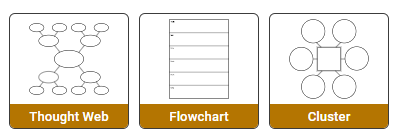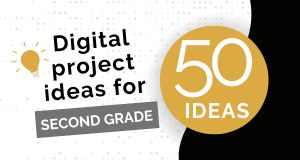Build Questioning Skills in Math
How to encourage student inquiry throughout a range of mathematical practices

Much of schooling asks students to become containers of knowledge. While math education is full of procedures to learn, solving math equations helps students build essential analytical thinking and problem-solving skills. It also provides many opportunities to help students develop inquiry and questioning skills.
The Standards for Mathematical Practice described in the Common Core State Standards are behaviors, expertise, and habits of mind necessary for successful work with math. By practicing questioning in each of these groupings, students learn how to use different types of questions to address differing situations and produce desired results.
Use these examples not only to model questioning in each area, but also to guide students as they practice inquiry on their own.
Make sense of problems and persevere in solving them.
Problem solving is not simply the ability to solve an equation. It also involves looking for patterns, listing possibilities, organizing ideas, finding similar problems or examples, and working backwards.

To solve problems effectively, encourage students to ask questions like:
- Before we move on, are we sure we understand this?
- What are our options?
- Do we have a plan?
- Are we making progress or should we reconsider?
- Why do we think this is true?
Reason abstractly and quantitatively.
Reasoning involves making sense of quantities and how they relate to each other, as well as the capacity to follow a rational set of steps when approaching or solving a problem.
To reason effectively, encourage students to ask questions like:
- What if …?
- How else can …?
- Does this always work? Why?
Construct viable arguments and critique the reasoning of others.
Arguing effectively requires analytical thinking as students compare ideas and facts, while breaking them into components and evaluating success. It also hinges on listening and exploring multiple perspectives.
To construct and critique effective arguments, encourage students to ask questions like:
- Why do we think this is true?
- What is an acceptable argument?
- How can this idea be tested?
- Does this always work?
Model with mathematics.
Effective modeling with mathematics isn’t just creating graphs and representing data. It’s the ability to represent problems in different ways.
To improve their model development, encourage students to ask questions like:
- How (else) can this be broken down?
- What else is similar to this?
- What do the numbers show?
- How are the values similar? Different?
Use appropriate tools strategically.
While students need to learn how to use tools such as calculators, protractors, and spreadsheets, they must also be given opportunities to independently choose the tool best suited for the task at hand.

To help students make decisions about tool use, encourage them to ask questions like:
- What (else) can we use to …?
- What would work the best?
- What can’t we do with this?
Attend to precision.
Create a learning culture in which quality is highly valued. Reward students for careful work and provide opportunities for them to reflect on their efforts along with the time necessary to make changes.
To improve precision, encourage students to ask questions like:
- Should we recheck our work?
- Is it appropriate to estimate?
- Is this quality work?
Look for and make use of structure.
Finding patterns and structure can help students break down complex problems into smaller, manageable components.
To see and use structure more effectively, encourage students to ask questions like:
- What is happening here?
- What goes together?
- What can we do first?
- Can we break it down? How?
Look for and express regularity in repeated reasoning.
Students can identify repetition by asking questions that help them more clearly describe what is happening and identify similarities and differences. They can use this understanding to make predictions based on their observations of patterns and develop rules and formulas.

To find patterns, encourage students to ask questions like:
- Can you describe what is happening?
- How is that the same? Different?
- How is that different?
- Where did we see that before?
- What do you think will happen next?
Building student questioning in math helps students "see themselves as capable of learning mathematics and using it to solve problems." (Adding It Up: Helping Children Learn Mathematics). This translates not only to success in math, but in problem solving in all academic areas and in life beyond the classroom.












